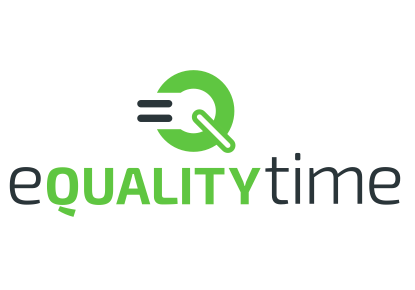The idea of launching CommuniKate as the first open licensed AAC page set was conceived exactly here, when Kate and I had dinner after BETT2014 (you can read my opinions of the event itself here).
So it was kind of nice that, exactly one year later, that Kate and I were invited to pitch CommuniKate to the Awesome Foundation.
The Awesome Foundation
If you are unfamiliar with the Awesome Foundation it’s worth learning more. Here’s the blurb from the website.
The Awesome Foundation is a global community advancing the interest of awesome in the universe, $1000 at a time.Each fully autonomous chapter supports awesome projects through micro-grants, usually given out monthly. These micro-grants, $1000 or the local equivalent, come out of pockets of the chapter’s “trustees” and are given on a no-strings-attached basis to people and groups working on awesome projects.
(The UK version is £1,000 rather than $1,000)
The pitch events are wonderful. Kate and I pitched alongside Board of Media, a performance poet, people with a concept for reusing food and Soundcastle. For most of the evening you are mingling with these guys and the trustees (who are all people who’ve made very cool things in their own right). So you have an evening of chatting to driven, open, wonderful and emphatic people. In every conversation you find yourself saying “oh I know a guy who can help you with that” or people saying “Try Fund X, they are interested in what you do”. To paraphrase Terry Pratchett “there’s nothing like being near happy startup people, it’s like giving your brain a hot bath”.
You absorb all the passion, drive and energy; it really lifts you.
The Contest
After all that, the contest element appears a little bit separate… you’d certainly go home happy if they just didn’t bother to announce the winner.
Luckily, they did announce a winner, and even more surprisingly it was AzuleJoe. (and it really was surprising – no false modesty here, the other groups were good).
So we had a bit of a party.
The Speech
For two reasons, firstly because we like transparency, and secondly because I like the speech, I’m putting the speech I gave to the evening here. It was very much under-rehearsed on the night and most of the best interactions of the evening were unscripted. I like to think the pitch clearly sets out the problem, what we want to do to solve it, and what’d do with the money. Beautifully, when the trustees announced the awards they said: “We’re giving you the award, but we don’t think you should spend it on that.”.
So. This is Richard. He has severe learning difficulties, many physical issues, and behavioural issues that often result in violence.He’s also my little bother.Richard can’t speak or read. Until he was about 19 we managed on maybe 90 signs, mostly nouns. It’s worth considering what your life would be like if you only had 90 words.Then, when he was 19, he got this. It’s an AAC device. AAC devices work like this:(Show this video)Suddenly Richard has 5,000 words, it ab-so-lute-ly changed his life.The problem is that Richard isn’t alone. There are 32,000 people in the UK that would benefit from powered AAC. Unfortunately there are only 9,000 people who do. That means that there are 23,000 people who can’t choose what they want for dinner, can’t tell a doctor their symptoms, can’t tell their family that they love them.If you are wondering why do these people not have access. This device was £5,000 at the time. I saw devices at BETT today that were £15,000. Communication is priceless, but there are families who have to choose between heat and food right now.So last year Kate, who has worked in AAC for about 15 years, came to me and said “I have a page set that has been working really well with my clients – I want to launch it worldwide, can you help?” and I said “Let’s talk about open licensing”.So ten months later we launched CommuniKate, a completely free, Creative Commons licensed page set that people could use on their own hardware. Complete with manuals, online versions and testimonials. You’ve actually already seen it in this video. The response was amazing. We’ve now got volunteers working on the code to improve it, and we’ve got teams translating it into Portuguese, Spanish, French, Swedish, Urdu and Arabic. Kate had people she didn’t know the name of hugging her in the street.I can give you a link, and you can play with it yourself inside of 20 seconds. We think this is going to make a difference to thousands of people in the UK and we hope it’s going to make a difference to many more outside.So here’s the problem. Free text to speech software sounds like this:(play first recording)and doesn’t support languages like Urdu and Arabic.A decent commercial service would sound like this:(play better recording)and it would be much faster.
But a decent commercial service and all of the licensing for this sort of thing costs around £700 and we don’t have that money. We were hoping the awesome foundation might be willing to help.


